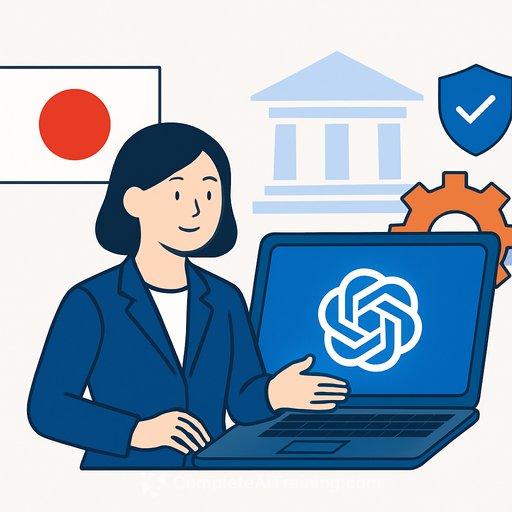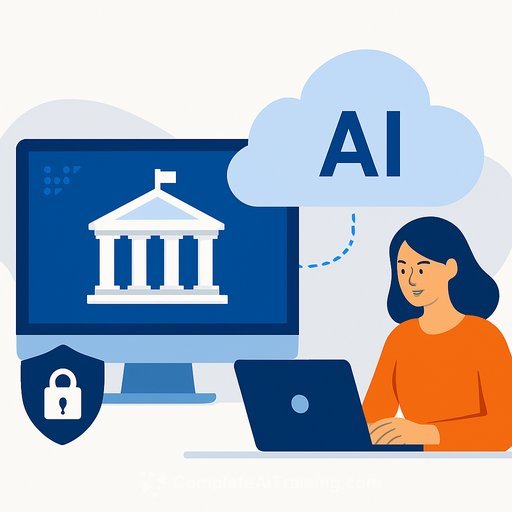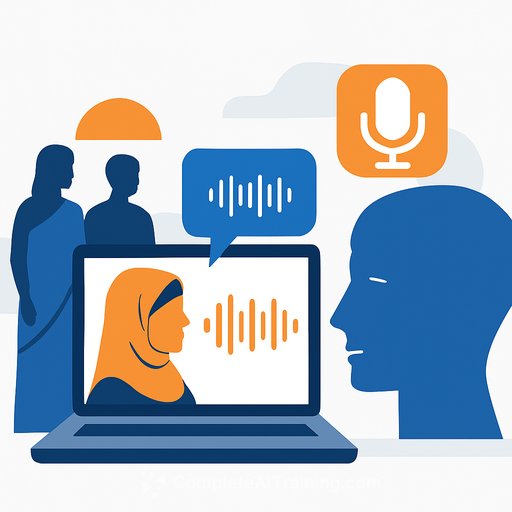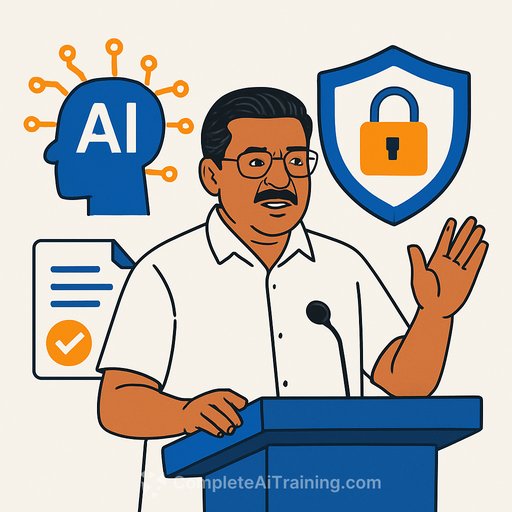Japan's Digital Agency Expands OpenAI Partnership: Gennai Moves Into Government Workflows
Japan's Digital Agency is partnering with OpenAI to roll out Gennai, a generative AI tool built for government employees. It runs on Japan's secure infrastructure, keeping data inside national borders while improving everyday workflows and service delivery.
The intent is clear: faster public services, higher administrative efficiency, and strong guardrails for privacy and transparency. The move also supports Japan's role in global AI rule-setting through the Hiroshima AI Process.
Security and Compliance: ISMAP at the Center
OpenAI plans to seek certification under the Information system Security Management and Assessment Program (ISMAP), Japan's official vetting program for cloud services used by government. ISMAP compliance would let agencies trust Gennai for sensitive operations and scale adoption across ministries with consistent controls.
On May 27, 2025, the Digital Agency released Guidelines on the Procurement and Utilization of Generative AI, emphasizing risk management and responsible use. These guidelines set expectations for providers working with government, including meeting ISMAP where applicable.
For reference, see the Digital Agency's site for policy updates and resources: digital.go.jp.
Rollout Plan and Transparency
Gennai started with a limited group of government staff and will expand across ministries as performance, security, and quality measures are confirmed. The platform runs on domestic systems, avoiding external storage and foreign cloud dependencies for official data.
The Digital Agency has begun publishing usage data from the pilot phase. That transparency builds public trust and sets the tone for longer-term adoption rather than short trials.
International Context: Hiroshima AI Process
Japan is working with partners through the G7 and OECD to set practical norms for safe AI deployment. The Hiroshima AI Process is a key venue for that work, bringing together governments, academia, civil society, and industry.
For additional context on international principles, see the OECD AI Principles: oecd.ai/en/ai-principles.
What Ministries Can Do This Quarter
- Map high-volume, text-heavy tasks where AI can reduce backlog (inquiries, summaries, drafting, data checks).
- Classify data by sensitivity; define what can and cannot be processed by AI under current policy.
- Set procurement criteria: ISMAP status, audit rights, logging, prompt/output retention, model update cadence, support SLAs.
- Run a time-boxed pilot (6-12 weeks) with a clear owner, risk register, and exit criteria.
- Establish human-in-the-loop review for all outputs that affect rights, benefits, or public safety.
- Implement red-teaming and test sets for accuracy, bias, and security before scaling.
- Add usage logging, access controls, and data retention policies that match existing records laws.
- Draft a privacy impact assessment; define incident response and rollback procedures.
- Create a short training path for staff: acceptable use, prompt hygiene, data handling, and escalation.
Suggested KPIs for Pilots
- Turnaround time reduction for targeted tasks (e.g., summarization, draft replies).
- Accuracy and correction rate after human review.
- Cost per transaction or case handled.
- Staff satisfaction and adoption rate.
- Deflection of routine inquiries to self-service or AI-assisted responses.
- Security and compliance findings (issues discovered and resolved).
How Gennai Changes Daily Work
- Drafts and summaries for briefings, meeting notes, and public notices.
- Structured extraction from documents to speed up checks and internal reporting.
- FAQ and citizen inquiry support with guardrails and oversight.
- First-pass translation support for internal coordination (with human review for official outputs).
Opportunities for Vendors and IT Partners
- ISMAP-ready hosting and integration services for ministries adopting Gennai.
- Security controls: private gateways, key management, and audit logging that meet government standards.
- Compliance support: evidence generation, continuous monitoring, and third-party assessments.
- Localization: domain dictionaries, prompt libraries, and evaluation datasets for public services.
- Change management: onboarding, training, and process redesign tied to measurable outcomes.
Skill Building for Public-Sector Teams
If your team needs a structured way to build AI skills for specific roles, explore curated options here: Complete AI Training - Courses by Job.
The Bottom Line
Gennai gives agencies a practical path to improve services while keeping security and privacy front and center. ISMAP compliance and clear procurement rules make scale possible.
Start small, measure hard outcomes, and expand only when the controls, accuracy, and public trust are proven. That's how you modernize government work without sacrificing standards.
Your membership also unlocks:






